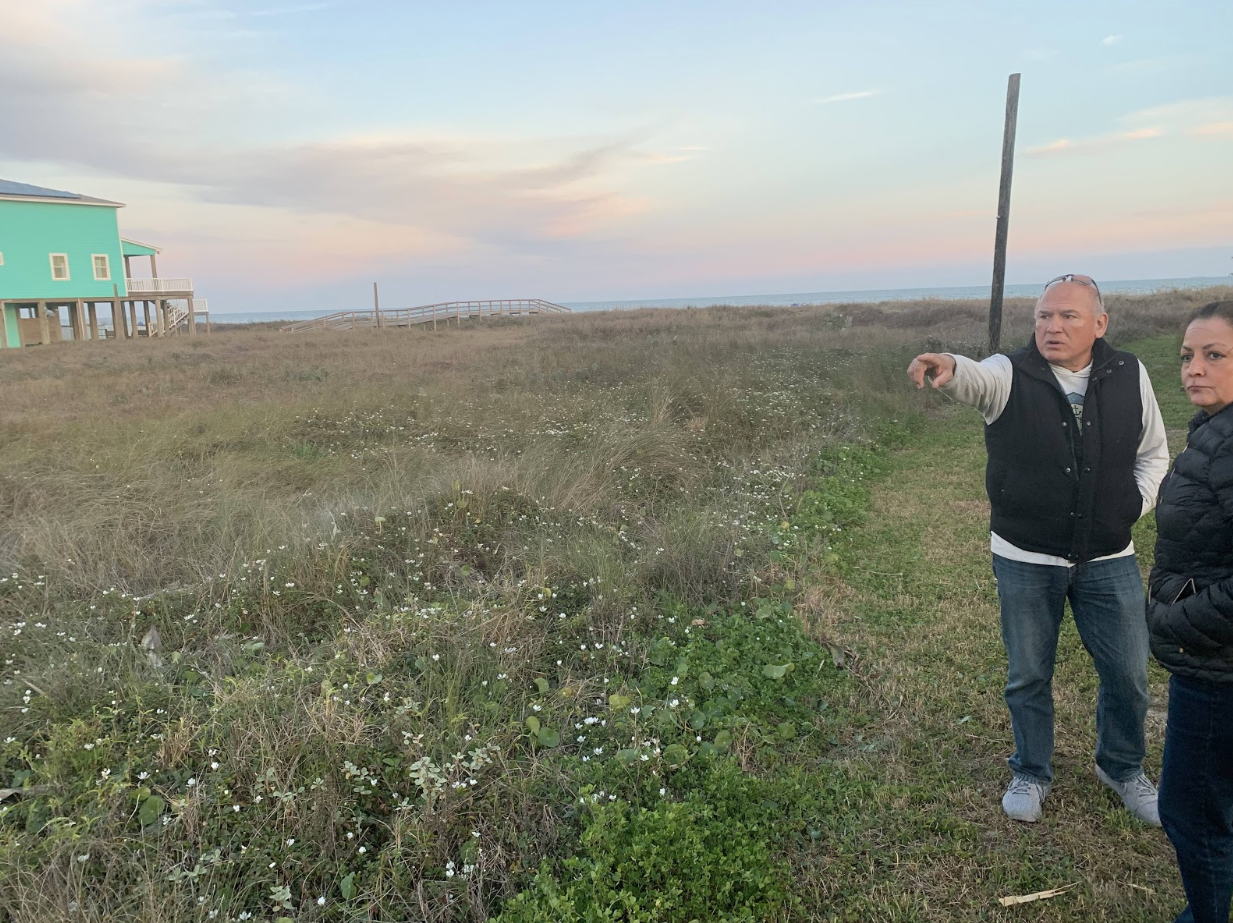On Wednesday, Feb. 26, Earthworks joined local residents and allies in Lake Jackson, Texas to participate in a public hearing on the Draft Environmental Impact Statement for the proposed Sea Port Oil Terminal (SPOT). Proposed by oil giants Enterprise and Chevron, the project would allow for 2 million barrels of crude oil per day to be piped onto the largest oil tankers on earth, called Very Large Crude Carriers – known as VLCCs – for export to global market. The massive project includes dozens of pump stations, a new storage facility, and 168 miles of new pipelines, including two 36” lines running dozens of miles to an offshore platform in the Gulf of Mexico for VLCC loading.
More than 20 people attended the public hearing to express opposition to SPOT. The project is one of 11 offshore VLCC terminals proposed for the Gulf, and of those, the one that has gained oil company interest and support quickly. This public meeting was the first opportunity to engage the US Maritime Administration (MARAD), the Coast Guard, and other state and federal agencies about the impacts they would have on local communities and the fragile coastal and marine ecosystems.
Earthworks, along with our allies at Texas Environmental Justice Advocacy Services, Texas Campaign for the Environment, Sierra Club, and the Carrizo-Comecrudo Tribe of Texas all mobilized as quickly as we could to canvass impacted neighborhoods, draft talking points, and prepare our response to this dangerous project.
Community members and leaders, including elected officials and landowners directly impacted by the pipelines, attended the public meeting. Public comments included ones from a Surfside Beach Alderman who is very upset about SPOT and the impacts on tourism and fishing, and the impact that construction and operation of SPOT would have on the turtle nesting grounds they are working hard to protect. There are as many as seven varieties of sea turtles that nest on the community’s beaches, including the Kemp’s Ridley, one of the world’s most critically endangered sea turtle species.

The community spoke out and are challenging SPOT and future VLCC terminals for several reasons. One, is that this kind of export terminal will allow Chevron and other oil companies to get their crude, largely extracted from the Permian Basin, to foreign markets. Choking off access to these markets will help slow the growth of fossil fuel extraction in the Permian, which is driven purely by exports. Another reason is that the construction and operation of the storage facilities, pipelines, and platforms, as well as the presence of the VLCCs, will have a tremendous impact on the Gulf Coast region, which is already suffering the impacts of air pollution and contaminated water.
Since the hearing, we are building new relationships with residents and elected officials in Surfside Beach. We’ll be out in the community this week attending a Surfside Beach City Council meeting, where on Tuesday the city will consider sending formal letters of opposition to the project to MARAD and the US Army Corps of Engineers. Then on Wednesday, we are co-hosting a community meeting and public comment workshop to support residents to raise their concerns. And we’ll be mobilizing allies nationwide to submit comments in opposition to this dangerous and unneeded project. After all, the expansion of Permian Basin drilling that this project would cause is a”climate bomb that affects us all.
TAKE ACTION: There are two opportunities to submit comments opposing the Sea Port Oil Terminal–one for the Army Corps of Engineers, which runs through March 20th, and the other for the Maritime Administration and U.S. Coast Guard, which runs through March 23rd.
